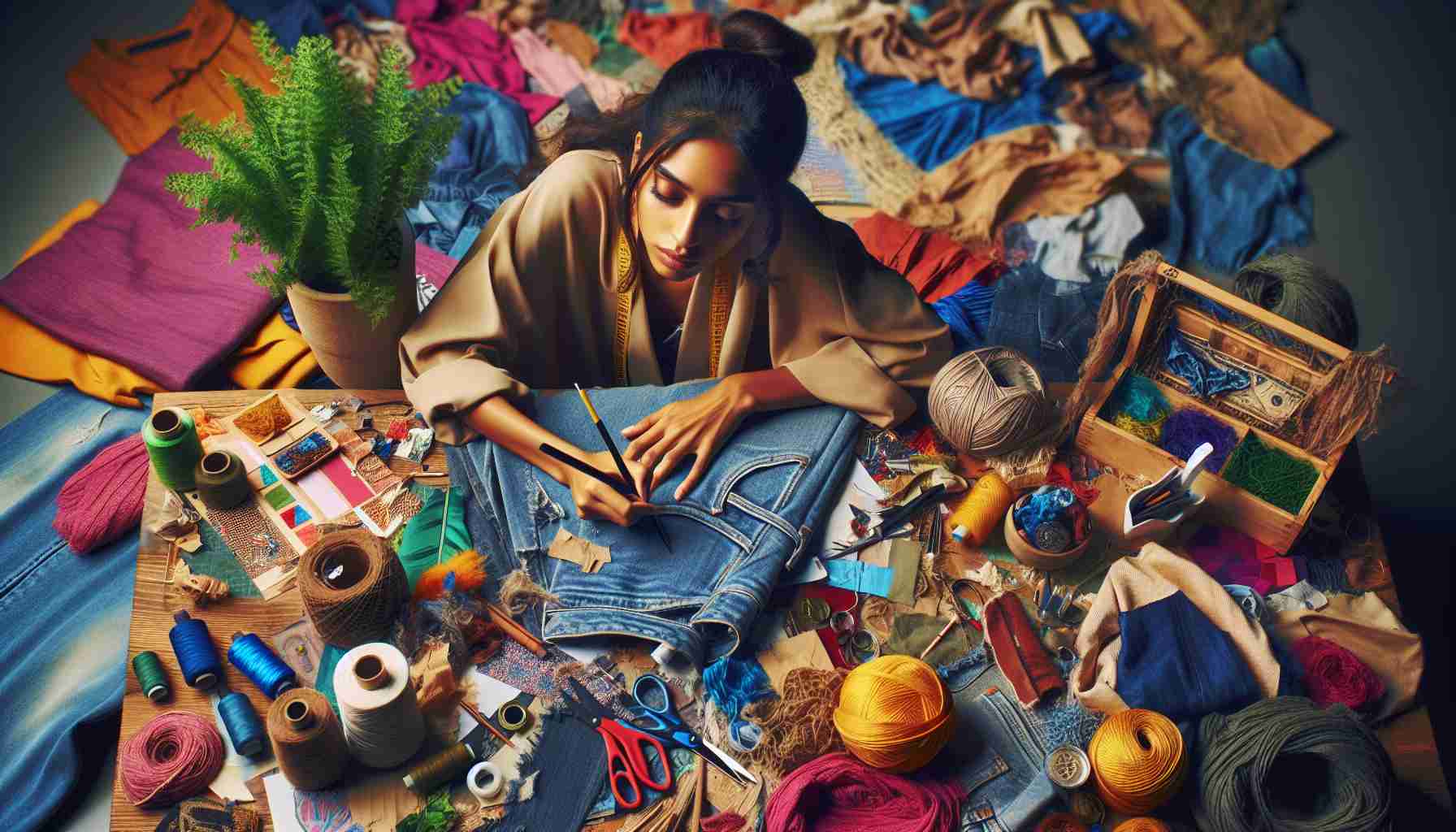Fashion
Young Entrepreneur Ventures into Sustainable Fashion with Upcycled Clothing Line

A young entrepreneur with a passion for sustainability has launched an innovative upcycled clothing line. The eco-conscious creator, known for his creative flair, has introduced a range of trendy outfits made from recycled materials.
This budding business owner’s commitment to environmental conservation shines through in every piece, as he aims to revolutionize the fashion industry with his planet-friendly designs. Drawing inspiration from nature and urban landscapes, his collection features unique garments that merge style with sustainability.
Photos shared by the entrepreneur on social media platforms showcase the high-quality craftsmanship and attention to detail put into each upcycled piece. From stylish tops to funky accessories, every item exudes a blend of creativity and eco-friendliness.
In a post unveiling his latest collection, the entrepreneur expressed gratitude to supporters and collaborators who have contributed to the success of this eco-initiative. His dedication to promoting a greener lifestyle is evident in his mission to raise awareness about the importance of sustainable fashion practices.
With a vision to drive positive change in the industry, the young entrepreneur continues to innovate and inspire others to make conscious fashion choices. Through his upcycled clothing line, he is paving the way for a more sustainable and ethical approach to dressing that resonates with eco-conscious consumers.
Follow along on social media to stay updated on the latest releases and initiatives from this visionary entrepreneur pioneering sustainable fashion.
Additional facts related to sustainable fashion and upcycling that are not mentioned in the article but are relevant include:
1. **Circular Economy Approach**: Many sustainable fashion brands, including those focused on upcycling, follow a circular economy approach where they aim to reduce waste and maximize the usefulness of materials through recycling, upcycling, and reusing.
2. **Collaborations in the Industry**: Sustainable fashion entrepreneurs often collaborate with other designers, artists, and organizations to promote eco-friendly practices and create a more significant impact in the industry.
3. **Consumer Education**: Educating consumers about the benefits of sustainable fashion and the importance of supporting eco-conscious brands is a vital aspect of driving change in the fashion industry towards more ethical and environmentally friendly practices.
Key Questions:
1. How does the young entrepreneur source the materials for his upcycled clothing line?
2. What strategies does he use to market and promote his sustainable fashion brand?
3. How does he ensure the quality and durability of his upcycled garments?
Key Challenges or Controversies:
1. Sourcing Materials: Finding consistent and high-quality materials for upcycling can be a challenge, especially in terms of ensuring a reliable supply chain.
2. Pricing: Setting competitive prices for upcycled clothing while covering production costs can be a balancing act for sustainable fashion brands.
3. Consumer Perception: Overcoming misconceptions around upcycled fashion and convincing consumers of its value and quality may pose challenges.
Advantages:
– **Environmental Impact**: Upcycling reduces waste and lessens the environmental footprint of the fashion industry.
– **Creativity and Innovation**: Upcycled fashion allows for unique and creative designs that stand out in the market.
– **Consumer Appeal**: The growing interest in sustainable fashion among consumers presents a significant opportunity for upcycled clothing lines to attract a niche market segment.
Disadvantages:
– **Limited Availability**: Upcycled materials may not always be readily available in abundance, limiting the scalability of production.
– **Cost Considerations**: The cost of upcycled materials or the production process may result in higher prices for the final products, potentially deterring some consumers.
– **Quality Control**: Ensuring consistent quality standards in upcycled garments can be challenging due to the variation in source materials.
Related Links:
1. Fashion Revolution
2. Global Fashion Agenda
3. EcoCult


)






